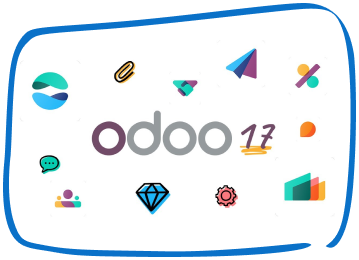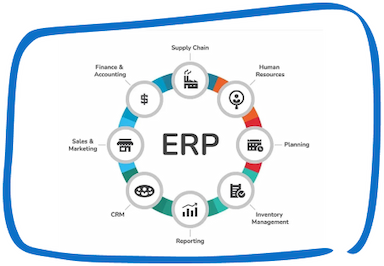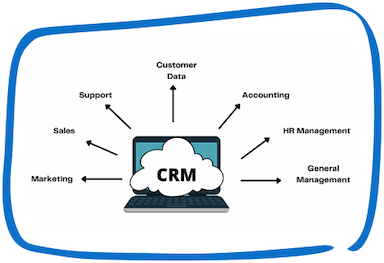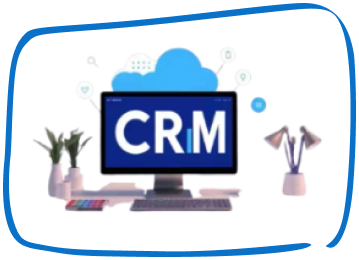Appropriate user training is one of the most crucial determining factors of success when installing ERP software. However, many businesses underinvest in their training programs.
They cut corners on training during the implementation project to save time and hasten go-live.
Training frequently loses priority after implementation as people return to their daily lives.
Even the best software is practically useless if your team doesn’t understand how to use it. You run the risk of having a failed ERP implementation if the worst happens.
A little more optimistically, you can still benefit from your ERP system even with poor training.
But because you’re not using the system to its maximum potential, it will take longer to produce results, and you might not realize the total return you had hoped for.
Let’s Have a look at the guideline for ERP implementation training
Allocate money for training
Like us, the majority of our vendors and partners will incorporate training into the ERP implementation effort. Your implementation project’s price should include the cost of your partner’s training time.
However, you will still need to set aside money for your staff members’ time to take part in the initial training.
You should allocate money in your ERP maintenance budget for training after adoption.
This will frequently be a time allotment for your consumers. They can participate in live training sessions with your ERP partner or vendor or study online training materials.
The majority of ERP suppliers also host yearly conferences with lots of chances for practical training.
Recognize your users
You must comprehend your users’ needs to create a training program that will be effective.
Your ERP training plan will be guided by the following queries:
- How many workers will make use of the system?
- What jobs do they perform?
- How will they employ the apparatus?
- Do they need to know everything?
- How much information do they want?
- How adept with technology is the user?
Provide process- and role-based instruction
Employees in all jobs impacted by the ERP implementation will undoubtedly need the training to comprehend the basics of the program and the broad organizational advantages it will offer.
However, users must receive training on the procedures and features pertinent to their particular tasks if the training is to be truly effective.
This requires training for the entire organization, so make sure to train everyone thoroughly. your end users, functional users, IT project teams, and senior and management teams.
However, there are other benefits to role-based training outside professional upskilling. It is crucial for maximizing the use of your training resources, particularly time.
Prioritize your procedures
You can discover a tonne of generic training materials online and through your ERP vendor, regardless of the ERP software, you choose to employ.
Although these are excellent resources for being acquainted with the framework and learning the fundamentals, keep in mind that technology is driven by process.
Your ERP system will be set up to suit your company’s requirements, thus your operations may vary from those depicted in general films.
How does that affect you? You should use processes to guide your training program.
Users should be instructed on how to use the ERP system to streamline their business’s activities.
This task begins when you implement your ERP because you can then clearly define which processes will change and which ones won’t.
Once you’ve identified any knowledge gaps, you’ll document how your processes are carried out in your new ERP system.
You must train on all processes because even if the process stays the same, the steps will appear differently in a new system.
Employees as trainers
As they are intimately familiar with your procedures, your staff are your finest trainers.
Although your super users will instruct other users during implementation, don’t anticipate them to fill that function on their own moving forward.
Select at least one person from each functional area to serve as the subject matter expert once your new ERP system is operational. They ought to be familiar with the pertinent procedures for that field and how to carry them out in your system.
Encourage them to accept responsibility for documentation as procedures evolve. As you bring on new staff, your subject matter experts also become the go-to people for peer-to-peer learning.
Start early and consistently practice
According to research, continuous exposure to new knowledge increases people’s likelihood of remembering it.
The Ebbinghaus Forgetting Curve, which shows that after just one exposure, 80% of information can be lost in as little as seven days, exemplifies this.
This means that you cannot simply train your ERP users once and then let them go.
Provide users with generic training resources from your ERP vendor to help them become familiar with the system as early as possible.
Give them access to a sandbox environment so they can play around and get practice navigating the screens if you can.
Create a process document
As you implement your ERP, you should document every procedure; this documentation serves as the foundation for your training program.
It’s simple to let paperwork lapse over time, but it’s crucial to maintain it current. In the absence of adequate documentation, mistakes and bad habits are more likely to occur as your procedures evolve.
Good process documentation also serves as your new hires’ how-to manual, assisting them in getting up to speed quickly.
Speak with Our Team!
4.9 Stars
1k+ reviews on






